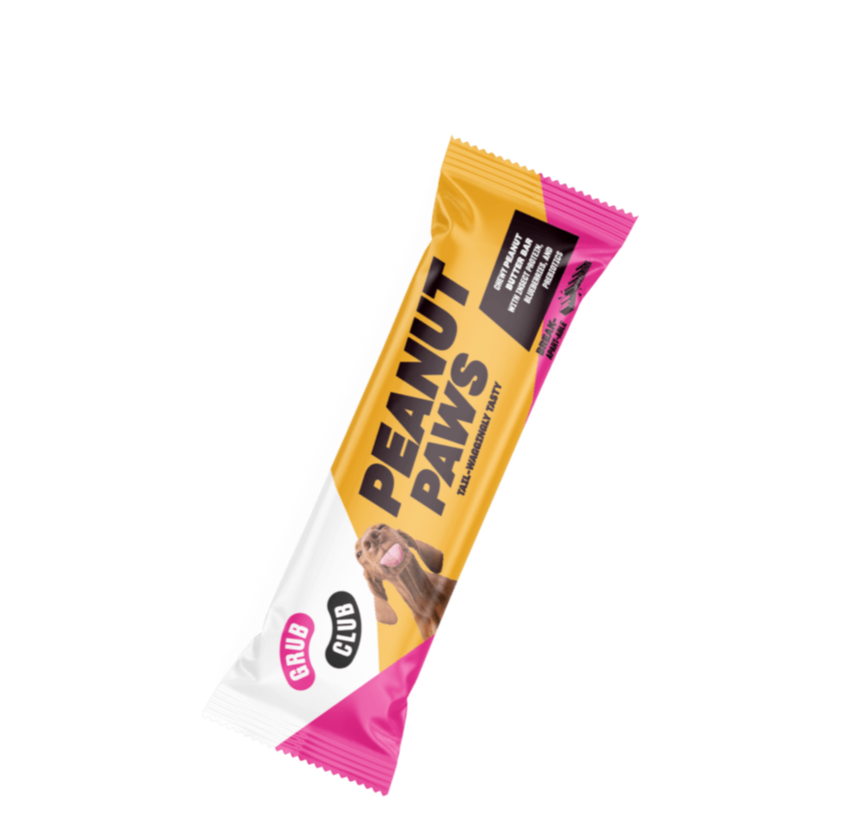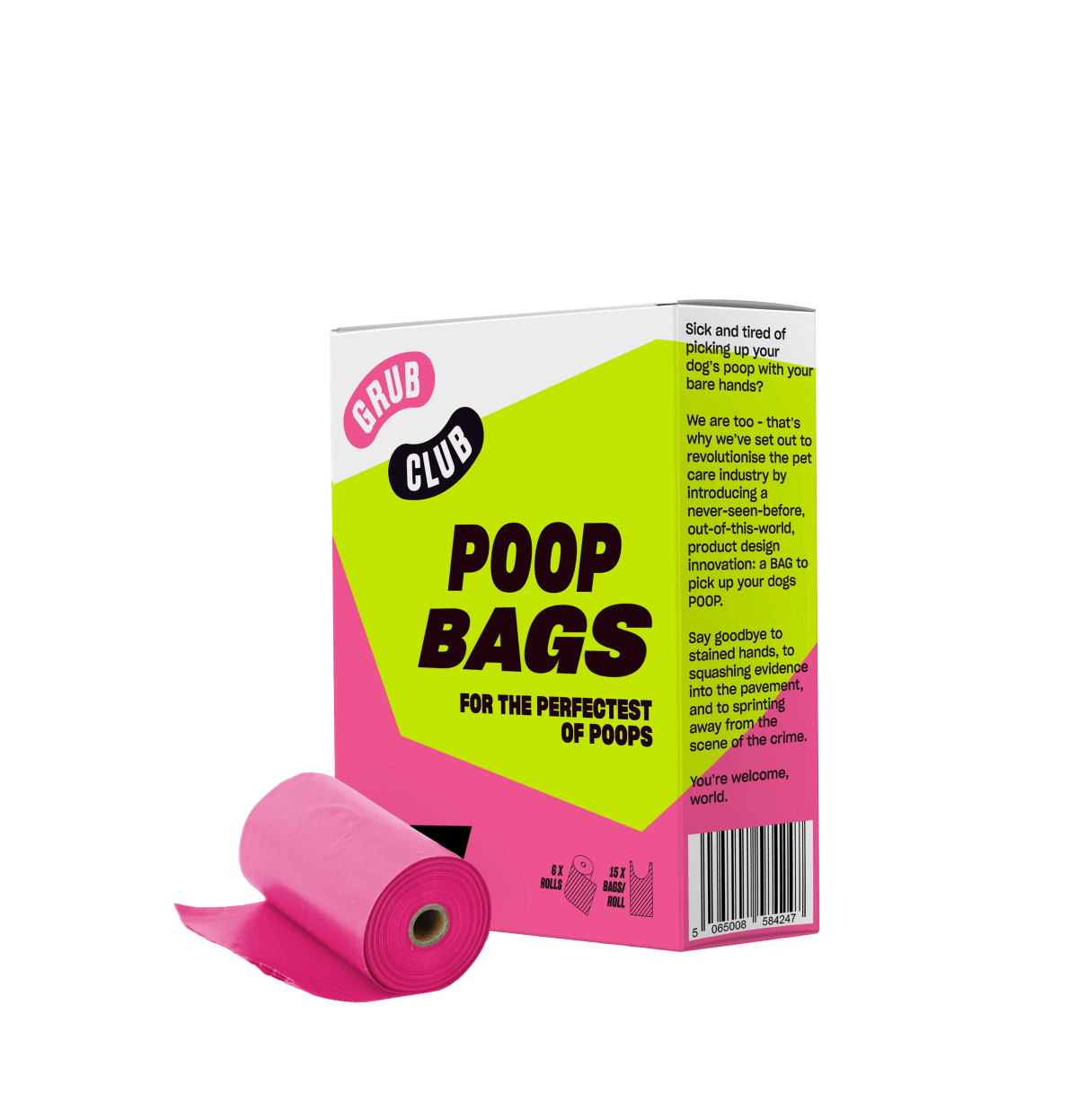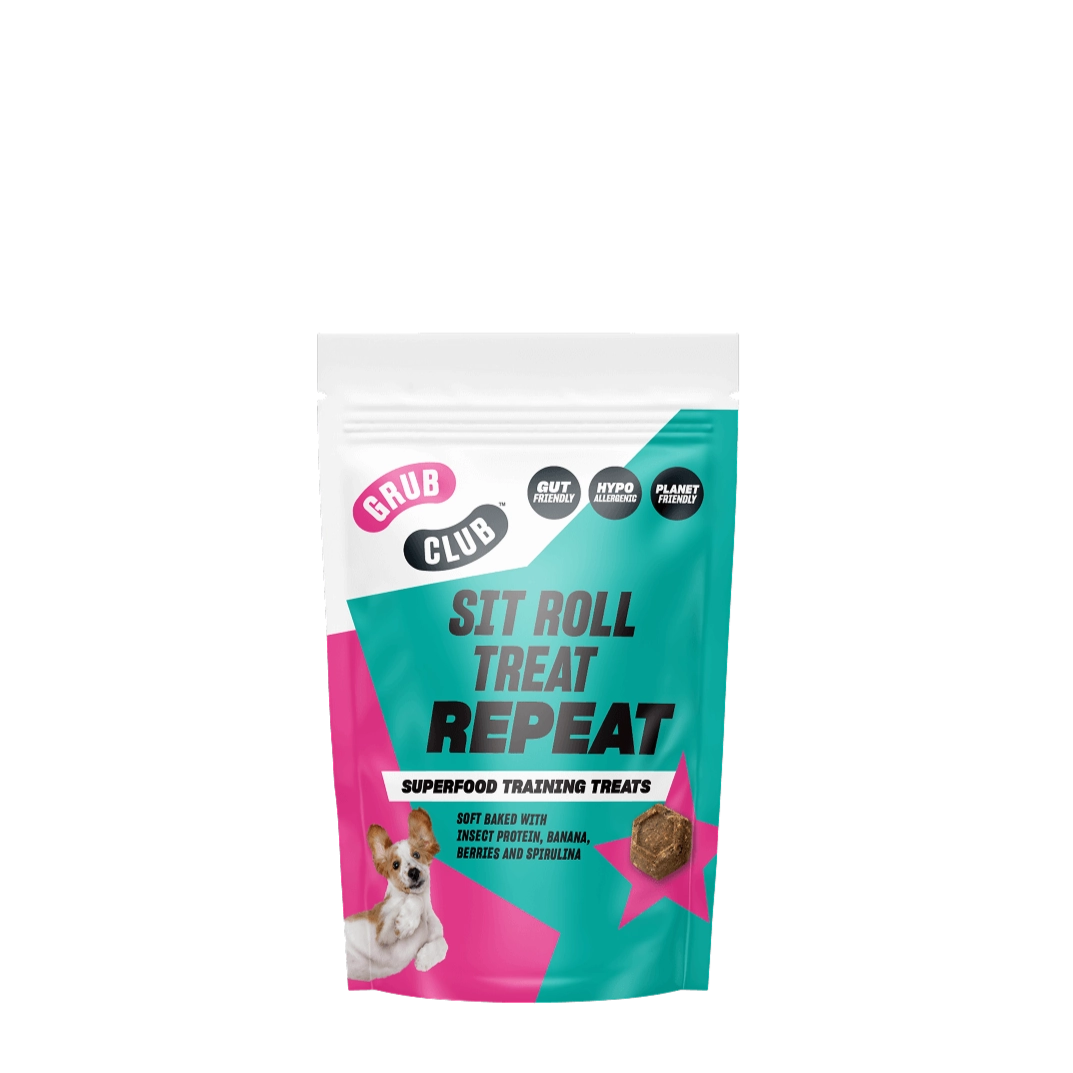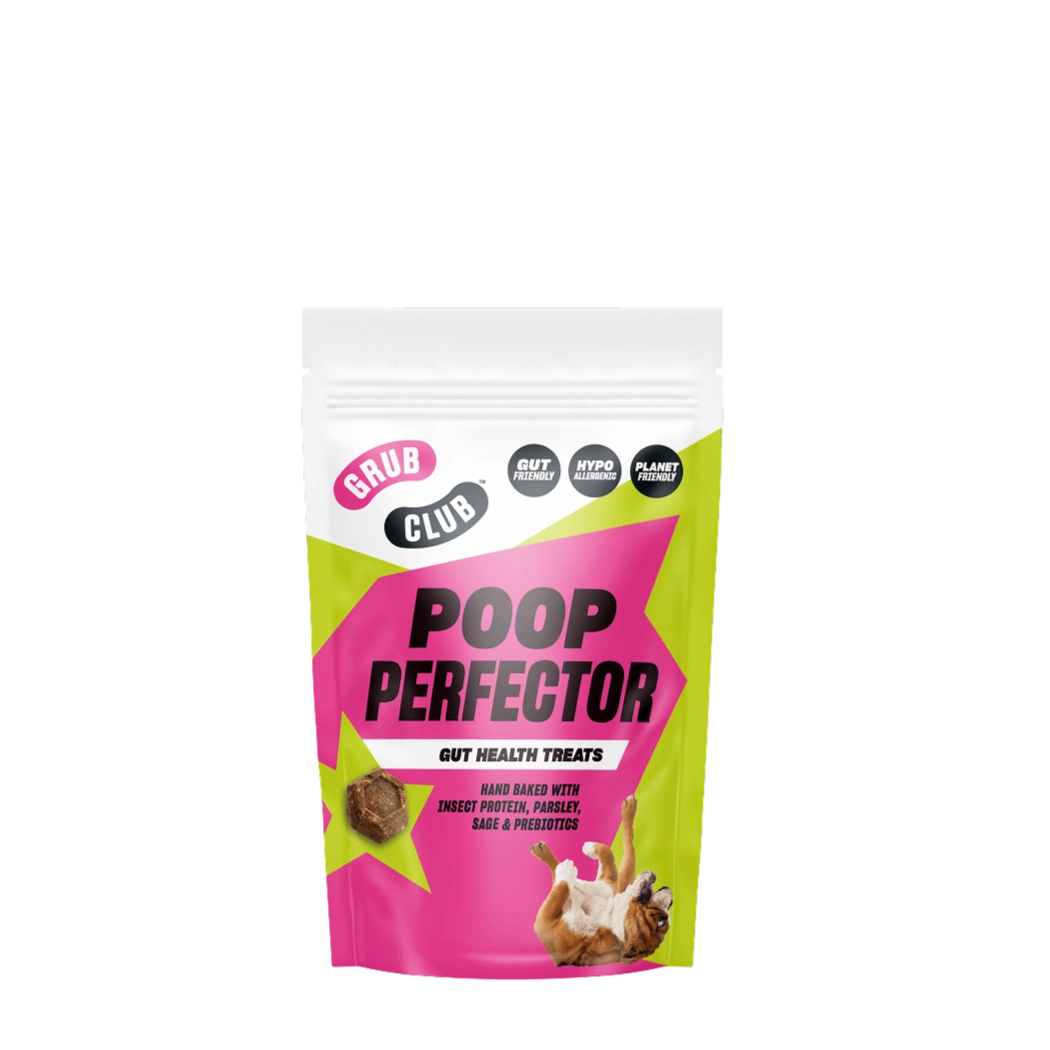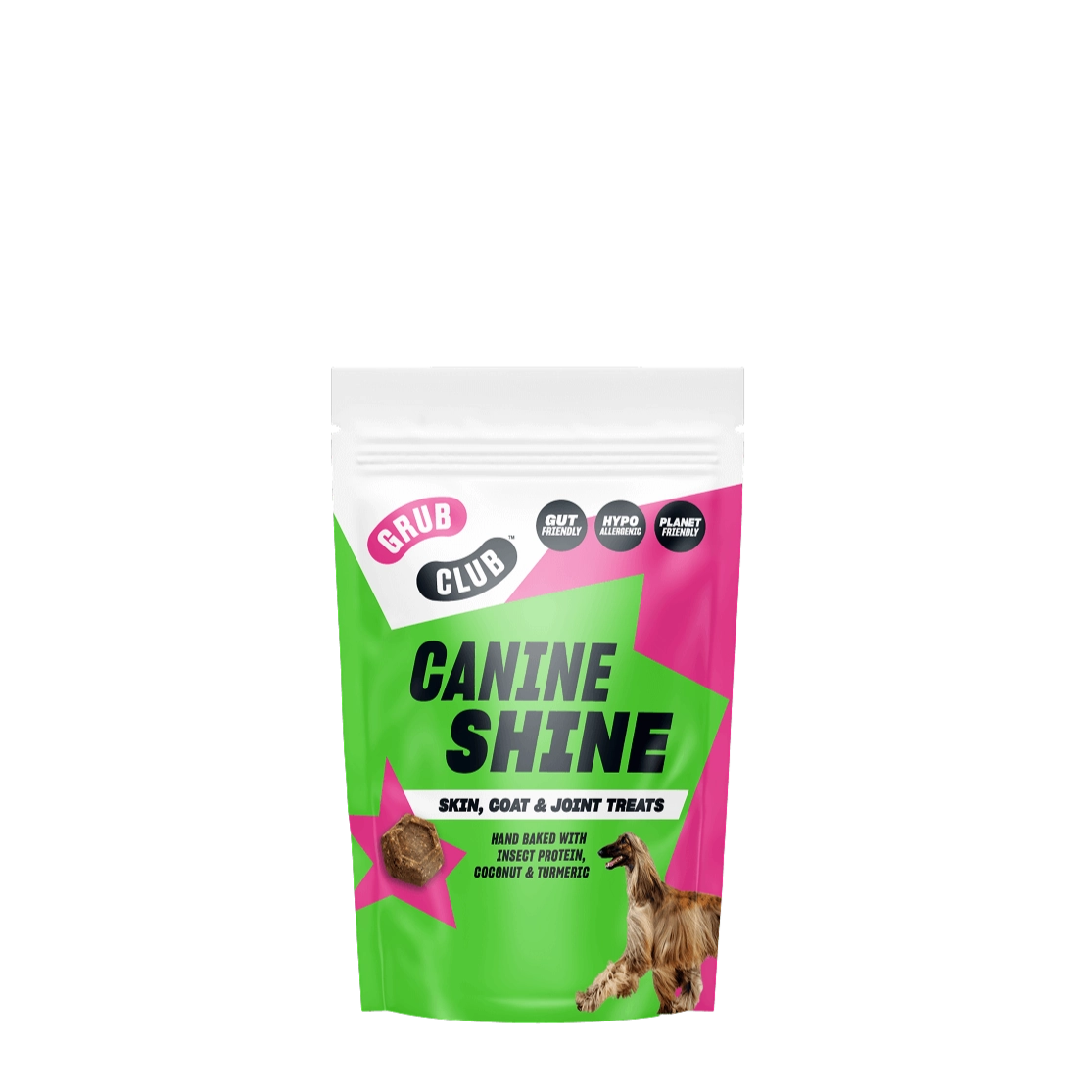Top Dog: All-In-One
Supplement for Snout-to-Tail Wellness
60 Scoops
FREE UK Delivery on orders above £49.
You have £0.00 in your cart, spend £49.00 more and get free shipping.
60 Scoops
1 Bar
72 Bags
1 Pack
1 Pack
1 Pack
Or continue without a name
CheckoutDid you know our pets eat 20% of the world’s fish and meat? *The simultaneous sound of jaws dropping all over the UK*
Here at Grub Club, we're making it our mission to spread the word about the environmental benefits of switching from meat-based dog food and embracing the wonders of insect protein (because big carbon footprints are soooo 2018.)
It's commonly believed that the best way to get protein is through eating meat but consider that myth firmly busted.
There are plenty of vegetarians and vegans out there who are proof that we can live a healthy life without consuming meat and instead feast on more nutritional alternatives such as: cheese, lentils, black beans, lima beans, eggs, pasta, peanut butter, yoghurt and many more… including insects.
There are more than 2,000 edible insect species that are consumed around the world with the most commonly consumed groups being beetles, caterpillars, bees, wasps, ants, grasshoppers, locusts, crickets, termites, flies and spiders.
In some cultures, consuming insects is already the norm. Not only are these critters easy to source but they also provide you (and your dog) with essential nutrients to survive - and thrive.
Did you know most insects contain almost all of the nutritional benefits that you get from eating meat, fish and rye bread all at once?!
Here at Grub Club, we use insect protein from Black Soldier Fly Larvae in our dog food and treats. It's rich in omegas and amino acids and is naturally hypoallergenic for dogs.
Compare this to meat and it's a stark contrast. Even though meat is a source of complete protein, iron, B vitamins, and fat due to its high content of saturated fatty acids and heme, ruminant meat is considered less healthy than other species.
Consumption of red meat (meat from mammals such as cows, calves, pigs and sheep) is associated with a higher risk of stroke, diabetes, heart disease and cancer.
There are still many studies going on to compare the two nutritional values of both meat and insect protein sources and how they affect people and animals long-term, but what has already been found is extremely positive for insect protein.
One study published in the European Journal of Clinical Nutrition shows that insects can contain can provide up to two times more protein per 100g compared to beef. Holy cow! Does this mean that All-Day Buffet is the dog equivalent of a big juicy steak? We like to think so.
Looks like insect protein just won the nutritional value round. *mic drop*
Unless you’ve been living under a rock (are you a bug?), you'll know that climate change is real, it's here and it's being driven by certain factors in human lives.
Our reliance on fossil fuels, unsustainable travel, fast fashion, consumerism and the love of meat. The last may surprise you but the facts speak for themselves:
CO2 – Producing 1kg of protein from beef emits approximately 2.850g of CO2
Water – Around 15.500 litres of water is needed to produce 1kg of protein from beef
Feed – Cattle need on average 20kg of feed to produce 1kg of protein
Land – 250 m2 of land is used per kg of beef protein and on top of this, it is estimated that around seven football fields of land are bulldozed worldwide every single minute to create more room. Why? Because there are now more farmed animals on the planet than there are humans.
Oh, and let’s not overlook the fact that we also need land on which to grow the sheer amount of food they require.
Now, if we do a little comparison to insects we get:
CO2 – Producing 1kg of protein from insects causes emissions of as little as 1g of CO2
Water – To produce 1kg of protein from insects requires approximately 5 litres of water, however, many insects themselves do not require any water or even any light whilst they are farmed (hence why the black soldier fly larvae is a perfect choice)
Feed – Insects require around 1.7kg of feed to produce 1kg of protein and this will be organic matter
Land – Producing insects requires approximately 3.5 m2 per kg of insect protein
Insect based protein will therefore create around 96% less CO2 than livestock making it the winner in the environmental impact round too. Ding ding, the gloves are firmly off.
The dog food world is dominated by meat-based dishes but insect protein is here to revolutionise this. We've been told over the years that our dogs NEED meat in their diets but this isn’t factually correct.
Dogs require a nutritionally balanced diet and yes this includes protein, but it doesn't mean that protein needs to come from meat sources.
The PDSA say:
“Dogs are omnivores, which means they can eat both meat and plant-based foods. As long as you buy a complete commercial food appropriate for your dog’s age and lifestyle, your dog will be getting all the nutrients they need whether you’re feeding meat or not”
We're seeing more and more dogs displaying food intolerances to both particular types of meat and grains so insect protein is a great alternative.
As a novel source of protein, insects are naturally hypoallergenic for pets, which is great news for sensitive tummies and itchy skin caused by meat-related allergies. Insect protein is rich in omegas and healthy fats, which support soft skin and shiny coats. Move out the way Beyoncé.
In terms of sustainability facts we can tell you that:
So, that’s a hat trick for insect-based protein!
Insect protein by far outweighs any argument for meat protein in terms of nutrition, environmental impact, feeding your dog and sustainability.
Utilising our little insect protein powerhouses can help us make a lasting positive impact on our planet.

